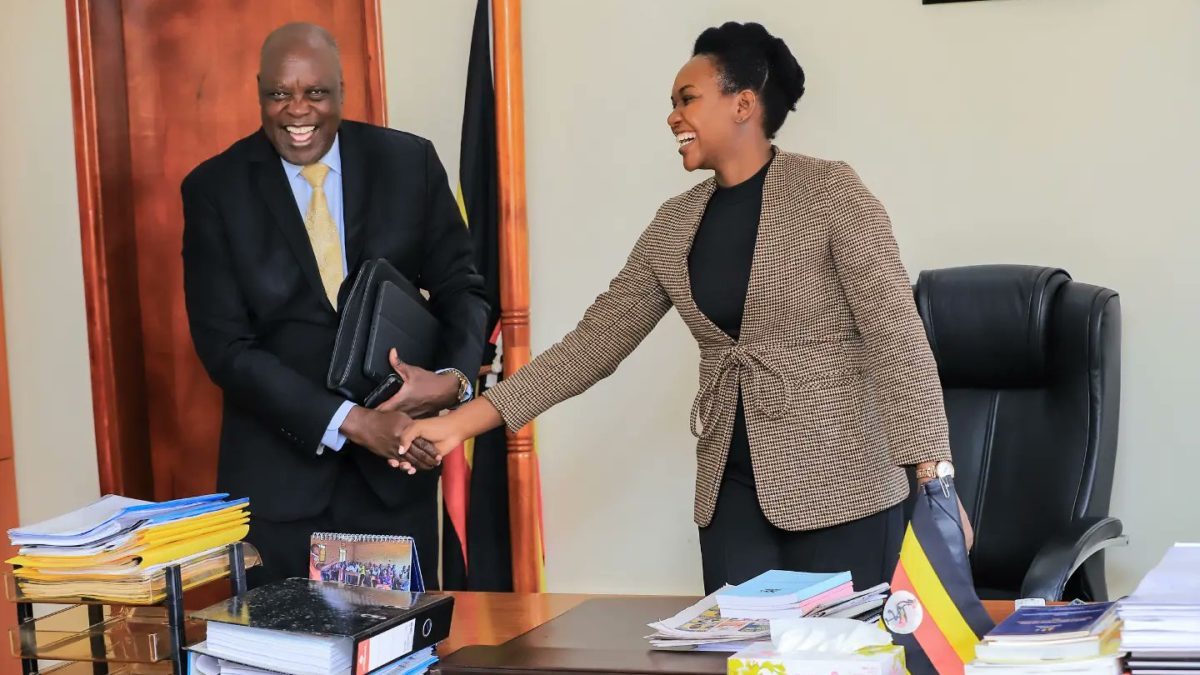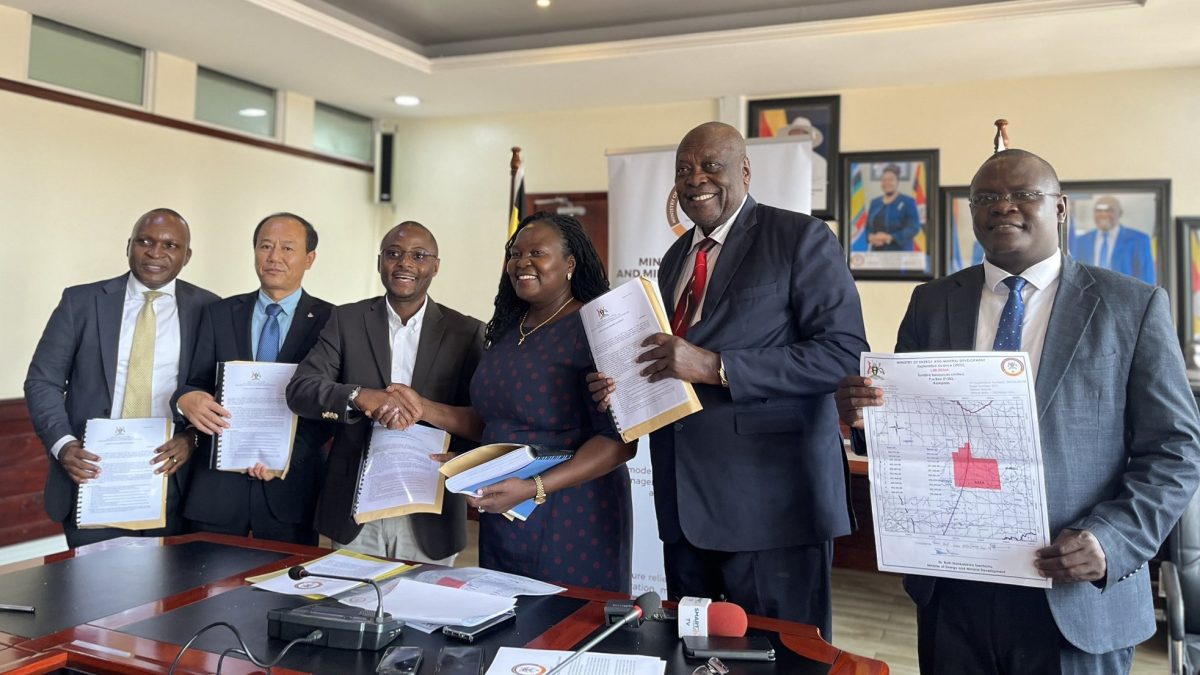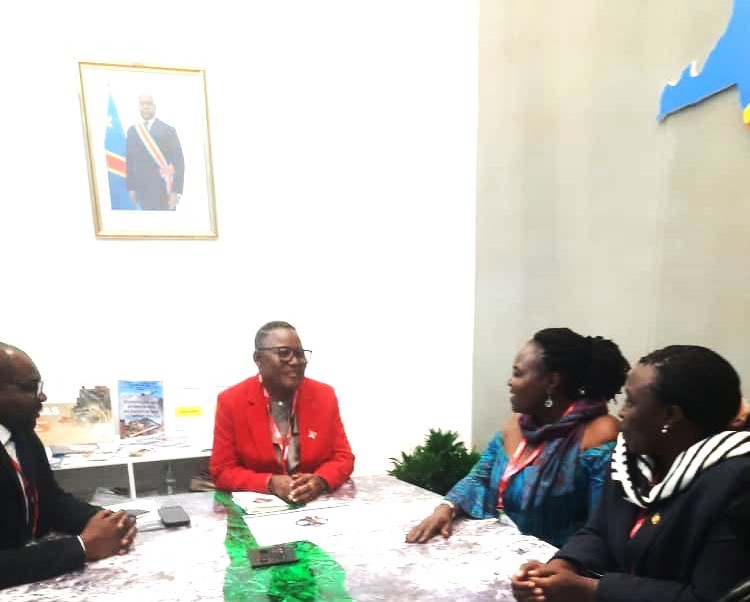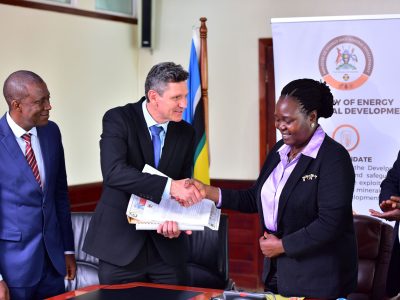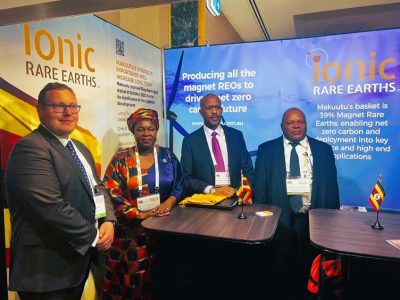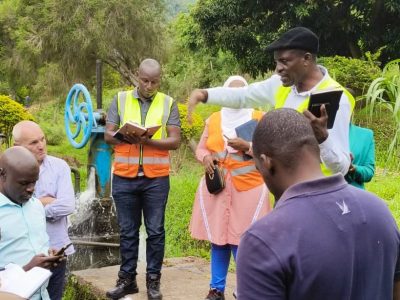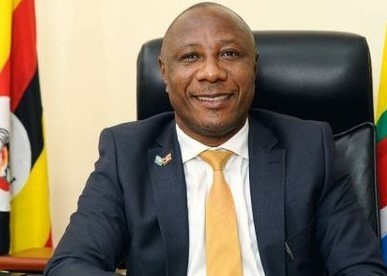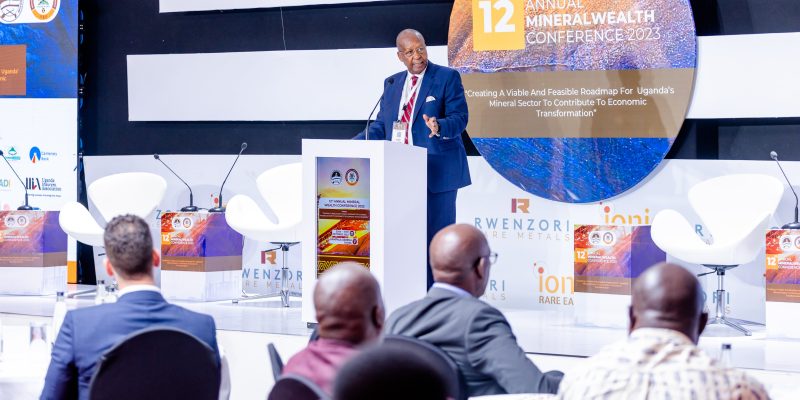
Uganda’s flagship mining summit – the Mineral Wealth Conference (MWC2023) – has kicked off in Kampala today.
Organized by the Uganda Chamber of Mines and Petroleum (UCMP), in partnership with the Ministry of Energy and Mineral Development, the two-day 12th annual conference is being held under the theme; “Creating a Viable and Feasible Roadmap for Uganda’s Mineral Sector to Contribute to Economic Transformation.”
In his opening remarks, Richard Henry Kaijuka, the Chairman of UCMP’s Board of Trustees, said the theme was carefully crafted in the context of the “new horizon” the mining sector is entering with new legislation – the Mining and Minerals Act 2022.
Among others, the new law seeks to professionalize and formalize artisanal and small-scale miners (ASMs) while also giving the Minister licensing powers, a duty previously reserved for the commissioner.
The new law also calls for state equity participation, where the State may be granted a non-dilutable ownership interest at no cost of up to 15 per cent in a large scale or medium scale mining license.
“As UCMP, we believe this legislation, once implemented fully, will further spur the growth of the mining sector, and create economic opportunities,” Kaijuka said.
Adding, “Data from the Uganda Bureau of Statistics (UBOS) indicates that in 2022, the mining sector contributed 1.6 per cent to the national GDP. We believe this figure is an understatement and can increase over the years as the country continues to harness the opportunities in the sector.”
While Shs 54.3 billion was allocated to the mining industry in the current national budget (FY2023/2024) up from Shs 49 billion last year – mainly meant for quantifying the country’s mineral deposits – Kaijuka called for more funding towards this cause.
Aeromagnetic geological surveys have indicated that Uganda has the potential for commercial exploitation of over 20 categories of minerals including rare earth elements (REEs), graphite, nickel, iron ore, gold, copper, cobalt, zinc, kaolin, uranium, 3Ts, lithium, gold, bentonite and other clays, among others.
“The focus should be on having more mineral exploration in this regard,” said Kaijuka.
Peter Lokeris, the State Minister for Mineral Development, emphasized Uganda’s drive for beneficiation (value addition) in the mining sector.
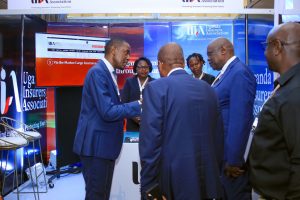
Jonan Kisakye (L), CEO, Uganda Insurers Association chats with Lokeris (R), the State Minister for Minerals and Kaijuka in the exhibition area
“In line with regional and continental aspirations, our strategic objective as government is to promote value addition for employment creation, industrialization and local content development,” he said.
Lokeris also hailed the efforts of the private sector in advancing Uganda’s mining and mineral industry, specifically noting the contribution of Wagagai (Busia gold), Rwenzori Rare Metals and Ionic Rare Earth (Makuutu REEs), Blencowe Resources (Orom-Cross graphite), Evergrande (Amudat gold) and Guangzhou Dongsong (phosphates) plus the six cement factories and eight gold refineries.
Jan Sadek, the Ambassador of the European Union to Uganda, said the EU is ready to support Uganda’s minerals value addition aspirations.
“The true potential of minerals lays not in their extraction, but in the strategic process or the value addition. Promoting extractive industries should lead to jobs creation and economic growth as President Yoweri Museveni repeatedly points out in his speeches. This sentiment is strongly shared by the EU,” he said.
To achieve this, though, Uganda needed to adopt a multifaceted approach, which includes assembling adequate data on the geological and chemical content of the country’s mineral wealth, he added.
“Such data not only reduces speculation in the sector, but also attracts investment of a higher quality and with a long-term commitment,” said Sadek.
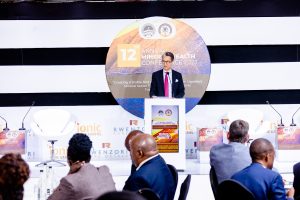
Sadek making his remarks
In the recent past, the EU has supported the Directorate of Geological Survey and Mines (DGSM) with over Shs 3 billion to help drill and evaluate at least seven iron ore prospects in south western Uganda, produce reports and investment promotion materials for at least seven feasibility studies, human resource skilling plus developing an iron ore exploration plan and manual.
“In line with the recently proposed EU’s Critical Raw Materials Act, we are ready to engage even further with Uganda in the context of a mutually beneficial partnership with a view of creating a sustainable and resilient mineral sector that drives economic growth, job creation and technological advancement,” added Sadek.
Advanced exploration in some of Uganda’s critical minerals, especially REEs and graphite, have raised expectations, with the country positioning itself to play a significant role in the global “Green Energy” revolution.
Tim Harrison, IonicRE’s managing director noted that a mining license for the Makuutu REEs project was imminent. The company recently received notification that the large-scale Mining License TN03834 for Makuutu had been approved-for-granting over Retention License (RL) 1693, by the DGSM.
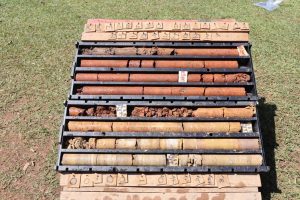
Core drill samples from the Makuutu REEs project
Patience Singo, the Country Manager, RRM (IonicRE’s partners in the Makuutu project) decried the licensing delays noting that it was not only affecting their scheduling plans but also presenting Uganda as a sovereign risk and in essence hurting its potential to attract financing into its mining industry.
Nabil Alam, the Country Manager, Consolidated African Resources (the local partners of Blencowe Resources) said: “Having completed the pre-feasibility study last year, we are now doing the definitive feasibility study (DFS) which includes the final design of the factory, mine sites, full costing, offtake agreements with potential buyers and a complete design of the project. We are targeting construction of the factory to begin in the 2nd quarter of 2024; then we can start mining.”
With support from the United States International Development Finance Corporation (DFC), Blencowe will spend about $10m by the end of the first quarter of 2024. And for the mine site and processing facilities the company will invest approximately $230m in the first five years.
“Naturally we are keen to do in-country value addition as much as possible. We think that upgrading of the concentrate to SpG (purified spherical graphite) will be a very positive step as it will take the value of our end product from about $1000 dollars to $3000 per tonne,” said Alam.
Also lined up for discussion at the MWC2023 is the opportunities and challenges in the mining industry, Uganda’s investment climate, transparency, financing, legal and climate change issues.
Furthermore, practical lessons from various players in the industry locally and internationally (for benchmarking), will be shared.



